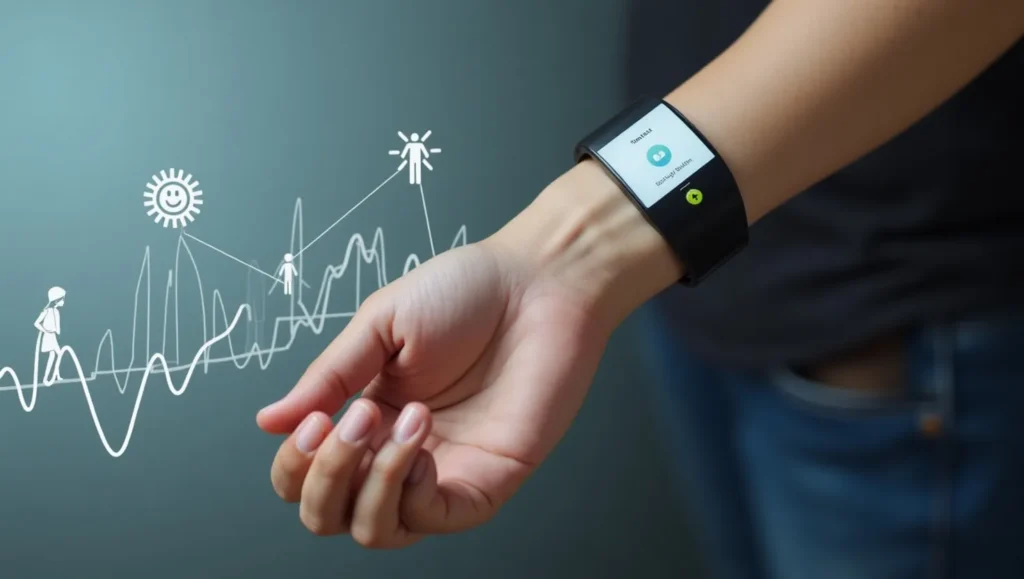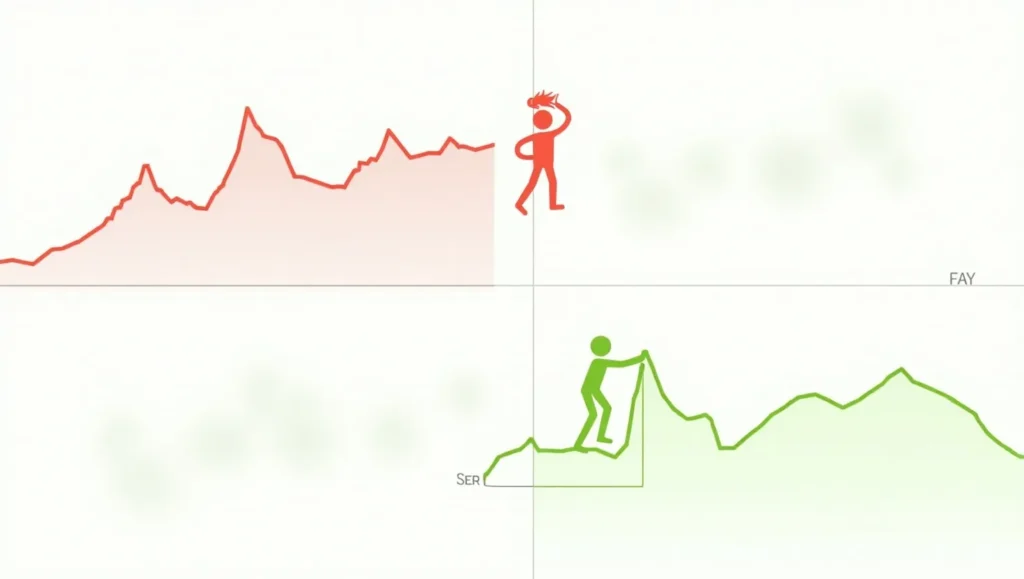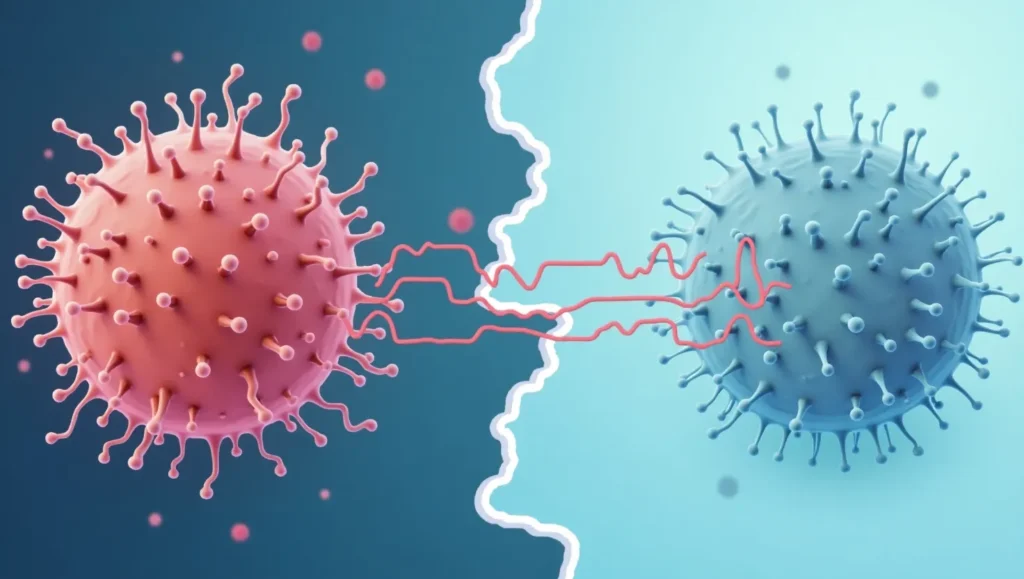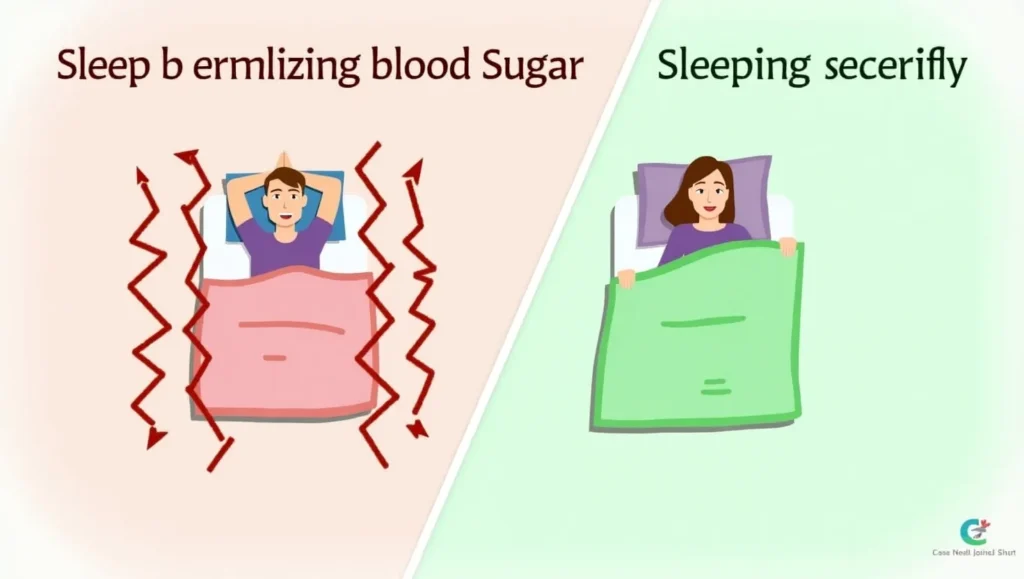Beyond Calories: 5 Shocking Ways Your Blood Sugar Impacts Your Energy, Mood & Weight (No Diabetes Required!)

In the USA and UK, we’re obsessed with calories. But what if a number you rarely think about has a far more shocking and immediate impact on how you feel every single day? We’re talking about your blood sugar levels. And no, you don’t need to be diabetic to benefit from understanding this crucial metric. The latest wellness trend involves non-diabetics discovering how their glucose responses to food and lifestyle can dictate their energy, mood, and even stubborn weight issues.
Forget the old belief that blood sugar is only for diabetics. Every time you eat, your blood sugar rises and falls, creating waves that ripple through your entire system. These “glucose spikes” can leave you feeling drained, irritable, craving more food, and even make it harder to manage your weight – even if you’re eating “healthy” foods! Understanding and managing these hidden fluctuations is your secret weapon for consistent energy, stable mood, and effortless weight management.
This guide will unveil 5 shocking ways your blood sugar impacts your daily life, even if you’re perfectly healthy. Get ready to look beyond calories and unlock a new level of understanding about your body, transforming your energy, mood, and weight by mastering your glucose!
The Hidden Power of Blood Sugar: More Than Just Diabetes
Blood sugar (glucose) is your body’s primary energy source. Insulin helps move glucose into your cells. When blood sugar spikes too high too fast, your body releases a surge of insulin to bring it down, often too quickly. This roller coaster leads to various undesirable effects. Optimizing this curve is key to vitality for everyone.
1. The Energy Rollercoaster: From Jolt to Jitter to Crash
Ever feel a burst of energy after a sugary drink or refined carb meal, only to crash hard an hour later? That’s your blood sugar in action. A rapid rise (spike) followed by a sharp fall (crash) leaves you feeling drained and unproductive.
The Shocking Impact: These crashes don’t just make you tired; they can impair cognitive function, making it harder to focus, and leave you desperate for another energy boost, often from more sugar, perpetuating the cycle.
The Solution:
- Pair Carbs with Protein & Fiber: Always eat protein and fiber alongside carbohydrates. This slows down glucose absorption, leading to a gentler rise and fall. Think apple with peanut butter, or whole-grain toast with eggs.
- Order of Eating: Eat vegetables and protein before carbohydrates. This can significantly blunt the glucose response.
Visual Focus:
- A dynamic graph showing a sharp blood sugar spike and then a rapid crash, overlaid with symbols of a tired, sluggish person. Below it, a smoother, more stable glucose curve with an energetic person.

2. Mood Swings & Irritability: The Glucose-Mood Link
If you find yourself feeling unexpectedly irritable, anxious, or moody, your blood sugar might be playing a role. Rapid glucose fluctuations can directly impact your brain’s chemistry.
The Shocking Impact: When your blood sugar crashes, your body releases stress hormones like adrenaline and cortisol. These hormones are designed to raise blood sugar quickly, but they also contribute to feelings of anxiety, edginess, and irritability.
The Solution:
- Balance Meals: Ensure your meals are balanced with protein, fat, and fiber to prevent sharp spikes and crashes.
- Avoid Sugary Drinks & Processed Snacks: These are notorious for triggering rapid blood sugar changes and subsequent mood dips.
Visual Focus:
- A person’s face (gender-neutral) subtly transitioning from a stressed/irritable expression to a calm, relaxed expression. A subtle red overlay for stress, transitioning to a green overlay for calm.

3. Stubborn Weight Gain & Cravings: The Insulin Connection
When your blood sugar spikes frequently, your body produces more insulin. High and consistent insulin levels signal your body to store fat, especially around the belly, and make it harder to burn existing fat.
The Shocking Impact: Even if you’re eating moderate calories, frequent blood sugar spikes can make weight loss incredibly difficult and lead to constant cravings, particularly for more carbs and sugar. It’s a vicious cycle.
The Solution:
- Prioritize Whole Foods: Focus on unprocessed foods rich in fiber and nutrients.
- Vinegar Before Meals: Drinking a tablespoon of apple cider vinegar diluted in water (about 15-20 minutes before a meal) can significantly reduce the glucose spike of that meal.
- Move After Eating: A short 10-15 minute walk after meals can help muscles absorb glucose, reducing the spike.
Visual Focus:
- A conceptual image of fat cells expanding next to a graph showing high, frequent blood sugar spikes. Below it, fat cells shrinking next to a smooth, stable glucose graph.

4. Skin Health & Premature Aging: Glucose Glycation
High blood sugar levels can damage proteins in your body, a process called glycation. This forms “Advanced Glycation End products” (AGEs), which contribute to inflammation, reduced skin elasticity, and premature aging (wrinkles, dullness).
The Shocking Impact: Your diet literally affects how quickly your skin ages! Frequent glucose spikes can make your skin look older and duller, regardless of your skincare routine.
The Solution:
- Reduce Added Sugars: Minimize sugary drinks, desserts, and processed foods.
- Focus on Antioxidants: Load up on colorful fruits and vegetables (berries, leafy greens) to fight oxidative stress and glycation.
Visual Focus:
- A close-up of healthy, radiant skin vs. slightly duller skin, with a subtle overlay of abstract sugar molecules damaging collagen fibers in the “dull” side.

5. Sleep Disruptions & Restlessness: Nighttime Glucose Waves
Even your sleep can be impacted by blood sugar fluctuations. A significant blood sugar spike close to bedtime, followed by a crash, can disrupt your sleep cycle, leading to restlessness and frequent awakenings.
The Shocking Impact: Eating a large, carb-heavy meal or sugary snack too close to bedtime can lead to sleep fragmentation, making you wake up feeling tired even after seemingly enough hours.
The Solution:
- Balanced Dinners: Make your last meal of the day balanced with protein, healthy fats, and complex carbs.
- Avoid Late-Night Sugary Snacks: If you must snack, choose something light with protein (e.g., a handful of nuts or a small piece of cheese).
Visual Focus:
- A conceptual image of a restless person in bed, with jagged lines (representing blood sugar spikes/crashes) around them. Next to it, a calm person sleeping peacefully with smooth, stable lines.

Conclusion
Understanding the profound and shocking ways your blood sugar impacts your energy, mood, weight, skin, and sleep is the next frontier in personal health optimization, even if you don’t have diabetes. By making simple, conscious choices about what and how you eat – prioritizing balance, incorporating smart hacks, and being mindful of your body’s responses – you can master your glucose levels. Unlock consistent energy, stable moods, and effortless weight management by looking beyond just calories and harnessing the power of balanced blood sugar!
Which of these shocking blood sugar impacts will you start addressing first for a healthier you? Share your insights below!
